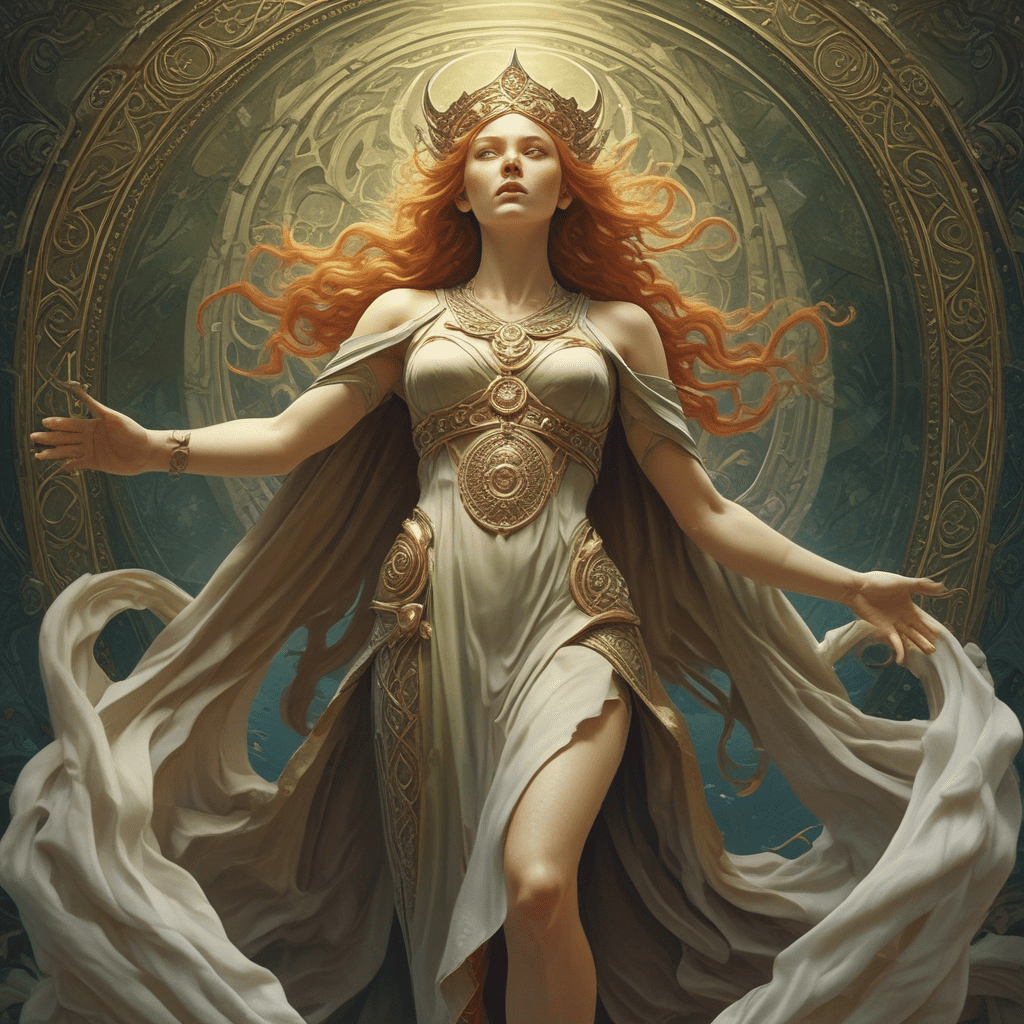Exploring the Power and Mystery of Female Figures in Celtic Mythology
Celtic mythology is rich with fascinating tales that have been passed down through generations, often featuring powerful and enigmatic female figures. These mythical women play diverse and significant roles in Celtic lore, symbolizing aspects of nature, magic, and spirituality. Let’s delve into the captivating world of female figures in Celtic mythology to unravel their intriguing stories and enduring significance.
The Triple Goddess: Brigid, The Morrigan, and Rhiannon
One of the central themes in Celtic mythology is the concept of the Triple Goddess, representing the maiden, mother, and crone aspects of the divine feminine. Brigid, the goddess of poetry, healing, and smithcraft, embodies the maiden aspect with her youthful vitality and creative energy. The Morrigan, a powerful goddess associated with war and sovereignty, embodies the mother archetype with her fierce protection and prophetic abilities. Rhiannon, the Welsh goddess of horses and birds, signifies the crone phase with her wisdom, endurance, and connection to the spirit world.
The Otherworldly Beauties: Aine and Fand
In Celtic mythology, there exist enchanting female figures who are often linked to the mystical realm of the Otherworld. Aine, the Irish goddess of summer and sovereignty, is celebrated for her beauty, fertility, and radiant energy. Fand, a sea goddess known for her ethereal grace and melodious voice, captures the hearts of all who encounter her through her mesmerizing presence and profound connection to the sea.
The Guardians of Nature: Cailleach and Epona
Celtic mythology also features female figures who embody the forces of nature and the cycles of life and death. The Cailleach, a Scottish goddess personifying winter and the wild mountains, symbolizes the transformative power of nature and the inevitability of change. Epona, the Gaulish goddess of horses and fertility, represents the nurturing and protective essence of the earth, highlighting the interconnectedness between humans, animals, and the land.
The Divine Healers: Brigid and Airmid
Women in Celtic mythology are often associated with healing and medicinal practices, portraying them as nurturers and caregivers. Brigid, in addition to her creative and poetic qualities, is revered as a healer who brings warmth and comfort to those in need. Airmid, the Irish goddess of healing and herbalism, embodies the knowledge and wisdom of the natural world, teaching humans the secrets of healing plants and holistic wellness.
From the fierce warrior goddesses to the ethereal beauties of the Otherworld, female figures in Celtic mythology offer a diverse and profound glimpse into the many facets of the divine feminine. These mythical women serve as symbols of power, wisdom, and resilience, embodying the eternal mysteries and enduring legacy of Celtic lore. Explore the captivating stories and timeless wisdom of these female figures to deepen your understanding of Celtic mythology and the profound connection between women and the spiritual world.
FAQs about Female Figures in Celtic Mythology
Who are some prominent female figures in Celtic mythology?
Among the most well-known female figures in Celtic mythology are Brigid, the goddess of poetry, healing, and smithcraft; Morrigan, a goddess associated with fate, war, and sovereignty; and Rhiannon, a Welsh figure often linked with horses and the otherworld.
What roles did female figures play in Celtic mythology?
Female figures in Celtic mythology often held roles as goddesses of nature, sovereignty, warfare, and healing. They were revered for their powers over the elements, connections to the land, and influences on matters like fertility and warfare.
Are there any stories or legends featuring female figures in Celtic mythology?
Yes, there are numerous myths and legends that showcase the roles and powers of female figures in Celtic mythology. For example, the tale of Rhiannon and her magical birds, or the stories of Morrigan shaping the outcomes of battles through prophecy and intervention are popular examples.





